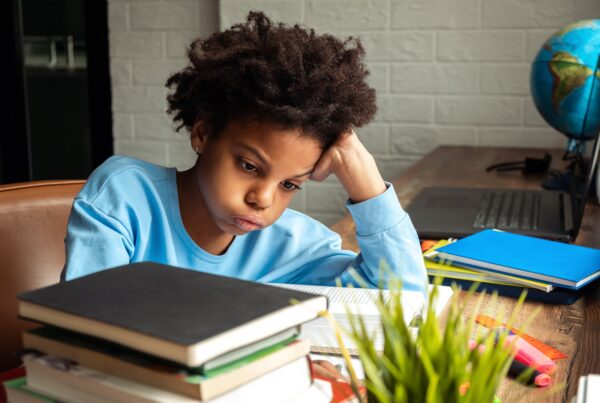As parents, we want nothing more than to see our children happy, confident, and thriving. But sometimes, anxiety gets in the way. Kids may not always say “I feel anxious,” but you might notice stomachaches before school, trouble sleeping alone, meltdowns over small changes, or constant “what if” questions. These are all ways anxiety shows up in children and it’s more common than you think.
The good news? Anxiety in kids is highly treatable, and with the right support, children can learn to manage their worries and grow stronger because of them.
Why Anxiety Happens in Kids
Children experience anxiety for many reasons: starting a new school, pressure to fit in, family stress, or simply the unknown. Some kids are naturally more sensitive or perfectionistic, making them more prone to worry. Anxiety is the body’s alarm system working overtime—it’s not about weakness, but about learning how to calm that system down.
Signs to Look For
Parents often notice changes before kids can explain what they feel. Common signs of child anxiety include:
-
Frequent stomachaches or headaches with no medical cause
-
Trouble separating from parents
-
Avoiding school or social activities
-
Difficulty focusing or following directions
-
Irritability, tantrums, or crying spells
How Therapy Helps
In therapy, kids learn practical tools to calm their minds and bodies. Cognitive Behavioral Therapy (CBT), for example, helps children challenge negative thoughts (“What if I fail?”) and replace them with more balanced ones (“I can try my best”). Play therapy and creative activities make these lessons fun and age-appropriate.
For parents, therapy offers guidance on how to respond to anxiety in helpful ways without accidentally reinforcing the fear. Together, families learn strategies that build resilience and connection.
What Parents Can Do at Home
-
Validate feelings. Saying “I know this feels scary” helps your child feel understood.
-
Model calm. Kids watch how you handle stress. Show them deep breathing or positive self-talk.
-
Break things down. Encourage small steps toward facing fears instead of avoiding them.
-
Keep routines steady. Predictability helps children feel safe.
You’re Not Alone
If your child struggles with anxiety, remember—you don’t have to face it by yourself. Child therapy offers a safe space for your child to build confidence, learn coping skills, and regain joy. With support, kids don’t just “get through” anxiety they learn how to thrive.
If you’re a parent in Plantation, Florida, looking for compassionate child therapy, I’d love to help your family navigate these challenges together.



